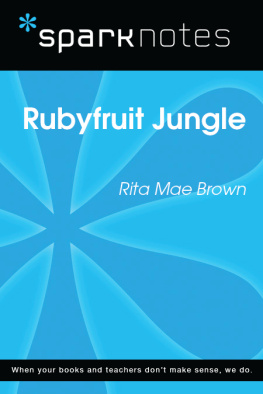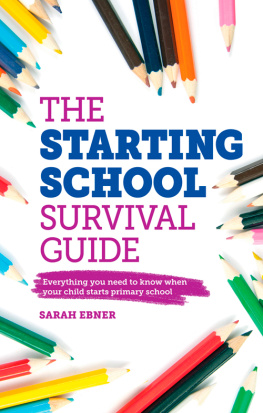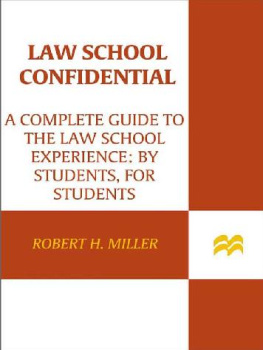the


jungle
LAW SCHOOL
SURVIVAL
GUIDE
the


jungle
LAW SCHOOL
SURVIVAL
GUIDE
From the Editors of JD Jungle and
jdjungle.com, the leading sources
of information for lawyers and law students

DA CAPO PRESS
A Member of the Perseus Books Group
Many of the designations used by manufacturers and sellers to distinguish their products are claimed as trademarks. Where those designations appear in this book and Da Capo Press was aware of a trademark claim, the designations have been printed in initial capital letters.
Copyright 2003 by JD Jungle and Jungle Media Group
All rights reserved. No part of this publication may be reproduced, stored in a retrieval system, or transmitted, in any form or by any means, electronic, mechanical, photocopying, recording, or otherwise, without the prior written permission of the publisher.
Cataloging-in-Publication Data is available from the Library of Congress
ISBN-13 978-0-3068-2301-5
Da Capo Press is a Member of the Perseus Books Group.
Find us on the World Wide Web at http://www.dacapopress.com
Da Capo Press books are available at special discounts for bulk purchases in the U.S. by corporations, institutions, and other organizations. For more information, please contact the Special Markets Department at the Perseus Books Group, 11 Cambridge Center, Cambridge, MA 02142, or call (800) 2551514 or (617) 2525298, or e-mail .
Text design by Jeffrey P. Williams
Set in 11-point Janson Text by the Perseus Books Group
First printing, March 2003
contents

NO MATTER WHERE YOU GO, YOU CANT GET AWAY FROM THE LAW. THE LAW AFFECTS NATIONAL SECURITY (TERRORISM), PERSONAL SAFETY (GUN CONTROL), POLITICS (BUSH V. GORE), BUSINESS (ENRON), SCIENCE (cloning), entertainment (Napster), pop culture (Judge Judy), and just about anything else you can name.
A law degree is your ticket to the world of law. Without going to law school, its nearly impossible to become a lawyer. And if youre not a lawyer, your ability to shape the law just isnt the same.
Why be a lawyer? For some, its the satisfaction of locking up bad guys. For others, its facilitating a $1 billion business deal. For still others, its protecting the innocent, wiggling through a loophole in the tax code, or redefining the concept of intellectual property. (Of course, it doesnt hurt that the median base salary for first-year law firm associates was $95,000 in 2001.)
Theres just one catch. Law school is hard. Very hard. And its also expensive. Shirt-off-your-back expensive.
Thats where this book comes in. The JD Jungle Law School Survival Guide will show you how to successfully navigate all three years of the law school experience. It will help you get accepted at the law school of your choice, find financial aid, study and take exams more effectively, manage stress, pass the bar exam, and land the job of your dreams.
The law is about power. Its about making a difference. Its about success. The JD Jungle Law School Survival Guide will help you achieve all three.
Jon Gluck
Editor, JD Jungle
Suma CM
Editor, jdjungle.com

IF YOURE THINKING ABOUT LAW SCHOOL, YOURE NOT ALONE. ACCORDING TO THE LAW SCHOOL ADMISSION COUNCIL (LSAC), 77,200 AMERICAN MEN AND WOMEN APPLIED FOR A JD IN 2001, AND THEIR reasons for doing so were probably just as numerous. Some may have envisioned fighting for justice; others, just fighting off financial insecurity with a fat paycheck. No matter what your reasons for considering law school, making the right decision requires careful consideration and self-examination.
Legal education has a lot of great things going for it, but its certainly no cakewalk. Programs can be intense, time-consuming, and fiercely competitive (just ask any student in the thick of her first year). Theyre also expensivetuition costs range from about $10,000 a year at a state school to almost $30,000 at a private institution, so by graduation time many aspiring lawyers are saddled with big debts. In addition, the curriculum takes at least three years to completelonger if youre going part-time.
Heres what to consider before leaping into the world of law school.
The biggest misconception that parents and students have is that all lawyers put on a tie, go out, and deliver arguments in a courtroom, says Joyce Whittington, director of career services at the University of Mississippi School of Law. While there are definitely a few Ally McBeals, Matlocks, and JAGs running around the world, a law degree offers many options beyond cross-examining witnesses all day. Almost every institution and organization needs a lawyer at one time or another.
The typical graduate can choose from an array of careers, from major corporate law firm work to public-interest advocacy. Private law firms, the most common place for graduates to land, do everything from litigation work to tax law, real estate law, intellectual property, and government lobbying and regulation. Banks, consulting firms, and corporations employ JDs both as associates and as in-house counsel. A JD may also come in handy if someday you want to cut through all the red tape associated with starting your own business.
Whittington advises roughly 500 Mississippi law school students each year, helping them land summer internships, associate positions at firms, and clerkships with judges. Over the years, shes also placed JDs in less conventional careers, such as journalism, foreign service, and finance. You can use your law degree for anything, she says, especially because it teaches you to write persuasively and to perform quick analysis.
How do you know if youre up for the career? Whittington advises prospective students to read as much as they can about the field.
Perhaps the best way to figure out if a JD is right for you is to spend a day pretending youre a law student. A little investigative research can go a long way. Sit in on law school classes, talk to law students, and meet with faculty members, advises Andrew Leipold, associate dean at the University of Illinois College of Law, in Champaign.
Also consider the daily grind: Youll have to do homework, meet with study groups, and take exams all over again. The detail-oriented nature of legal education means that students are forced to read massive textbooks and assimilate information quickly. Logical reasoning is stressed, and law students are often required to think on their feet as they are subjected to professors cold calls, heated classroom debates, and moot court competitions.














